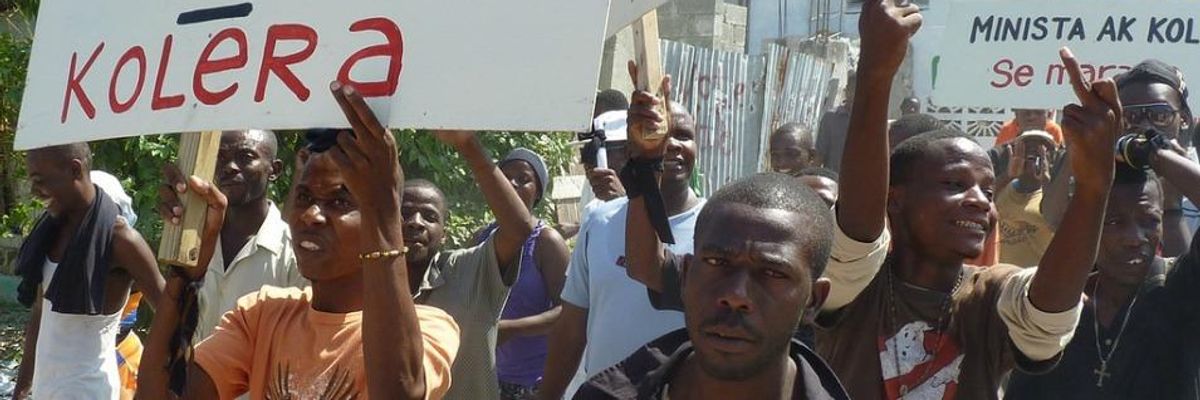Earlier this month, on the eve of the 5th anniversary of Haiti's tragic earthquake, a U.S. District Court judge ruled against Haitians' class action suit asking the United Nations to take responsibility for the deadly cholera epidemic it triggered in October of 2010. Viewed from both narrow and broad perspectives, the decision in Delama Georges, et al, v. United Nations, et al, was the wrong one, and it will be appealed.
In a narrow sense, the court erred in holding that the UN was immune from any suit. The Convention on the Privileges and Immunities of the United Nations calls for the UN to settle claims like those brought by the Haitian victims, a practice the organization has followed across the globe for decades. Moreover, the UN entered into a specific Status of Forces Agreement with Haiti where it pledged to create a process to address claims by private citizens, a promise the UN never fulfilled.
More broadly, the court's ruling cannot be squared with the basic human right to a remedy for harms like those suffered by thousands of Haitian plaintiffs like Lisette Paul and Delama Georges, who lost family members to cholera. This is especially true when the harm is so grievous: 8,700 Haitians have died and over 700,000 have been sickened by the cholera unleashed by the UN's reckless waste disposal and troop screening practices.
The tragic irony in this case is that the responsible party trying to hide behind a claim of immunity also happens to be the world's foremost promoter of human rights and the rule of law. "This decision implies that there is nowhere in the world that Haitians can turn to seek justice from the UN," said Mario Joseph of the Bureau des Avocats Internationaux in Haiti, a lawyer for the cholera victims. "That is irreconcilable with human rights and basic notions of justice."
But all is not lost here. The anti-slavery movement lost court cases at one time (Dred Scott v. Sandford), as did the civil rights movement (Plessy v. Ferguson) and the women's rights movement (Muller v. Oregon). But these causes ultimately prevailed, and so will the effort to bring justice to the Haitian people.
A global movement ignited by Haitian human rights activists now includes passionate demonstrations in the streets of Port-au-Prince and Manhattan, petitions with tens of thousands of signatures, award-winning films, and the support of members of Congress and global leaders, including current and former UN officials. All call on the UN to take responsibility for cholera's devastation, and to make things right.
The arc of the moral universe is long, but it bends toward justice. It will for the Haitian victims of the UN as well, in large part because Mario Joseph, Lisette Paul, and all those standing by their side are going to keep pulling in the same direction until justice is served.
